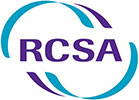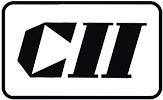The Most Effective Ways to Measure Recruitment Success
Recruitment is an essential part of every business. Just like the other facets of your business, recruitment processes should also be analysed and continuously improved on a regular basis. That’s how you can ensure that the whole process is efficient, cost-effective and adding value to your organisation.
To measure recruiting success, here are a few metrics that you should be considering -
Time to hire
It measures the time taken by a recruiter to hire someone for your organisation. While the type of position available as well as the job market dynamics can influence this metric, it’s still a good measure of your speed and efficiency when it comes to hiring the right candidates. It also helps you detect any bottlenecks in your candidate screening process.
Quality of hire
Quality is what matters for any aspect of business. While hiring candidates quickly is essential, ensuring the quality of new hires is quite important to determine recruiting success. Although this might be a tricky metric to measure, it’s doable. Periodic surveys conducted with managers and other employees will help assess the quality of hires. The performance of new hires is the greatest measure of the success of your recruiting processes and strategies.
Source of hire
This metric tells you where your best candidates are coming from and how they found out about your vacancies. With this information, you can make better decisions regarding advertising your vacancies and hiring candidates for any current or future available positions.
Days to offer
Days to offer measure the time taken by an applicant to complete the entire recruitment process, after initial contact. Candidates want to get an offer quickly; otherwise they end up losing interest in your company.
Shortening the days to offer will ensure that you snag the top talent available in the job market. Whereas an increase in the days to offer generally lead to candidates rejecting your offer and getting snagged by your competition.
Turnover
Ensuring that you hire employees who will stay with your organisation is vital. The cost of replacing employees who leave is enormous. A high turnover is a strong indication of the fact that the employees you hired were either bad hires or were dissatisfied at their job roles, which reflects badly on your recruitment processes. The most important goal of recruiting is making sure there is a good fit between employer and employee.
Offer acceptance rate
Offer acceptance rate how’s how enticing and appealing your value proposition is to the candidates. It also reflects the overall candidate experience during the recruitment process. Establishing a benchmark for offer acceptance rate helps you track the attractiveness and competitiveness of your job offer and improve accordingly.
Time-to-productivity
The time taken by new hires to perform in their roles is strong indicator of their qualifications and also the amount of training to be provided. The faster they start performing, the better it is for you to drive business growth.
There are several metrics that you can use to measure the success of your recruiting strategies and processes. What matters the most is how you measure and keep track of these metrics, and what actions you take based on the information you get from these metrics. At International Manpower Resources, we can help you track and analyse all of the important metrics.






.jpg)